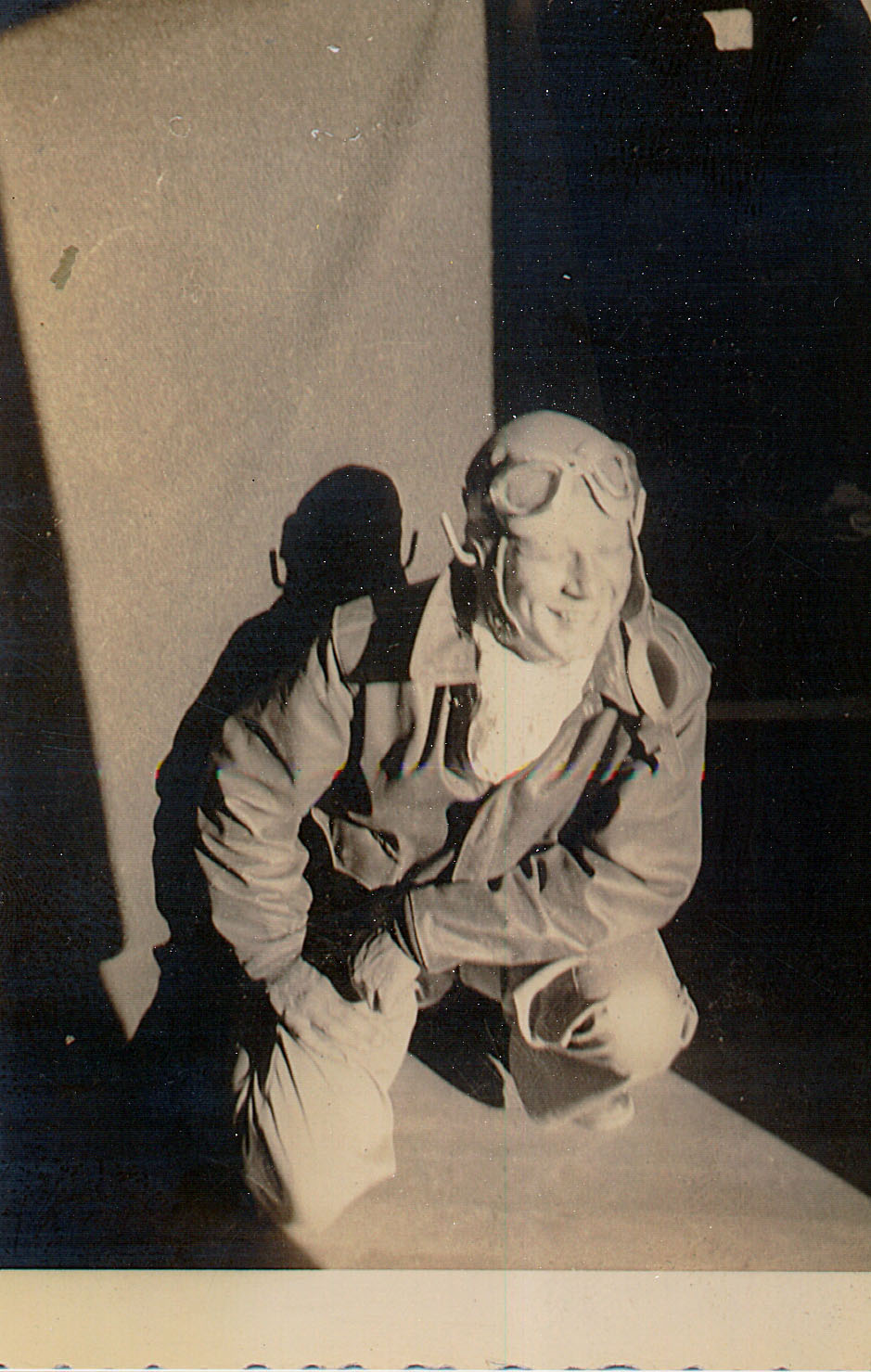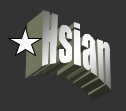We
now had 28 missions and were anxiously awaiting orders to rotate
home. At one earlier point in time, when we had maybe 15
missions, Ab and I had a serious talk about what we would do if we were
asked to fly combat after our 25 missions were in. At that time,
we agreed that we wouldn't do it no matter what was at stake, and we
solemnly shook on it. We were now instructed by Col. Coleman that
we didn't have to fly any more combat missions -- that we were entitled
to "stand down" while waiting for rotation orders. But we had
changed. We were now very confident of our ability to prevail in
almost any situation, and if something bad was going to happen, it
would happen to somebody else. We were under a kind of stress
thing that somehow made this make sense, and when a mission opportunity
looked good to us, we flew it to keep proving ourselves.
It was in this "warrior" frame of mind that we met with Col. Coleman on May 21, 1945. Day fighters had been having difficulty finding moving targets and night fighters were
producing less than before. The thought was that with day
fighters leaving the target area maybe two or three hours before sunset
and night fighters not arriving until 9 or 10 p.m., a four- to six-hour
time window was being left when the enemy had unchallenged freedom of
movement. Day fighters had to land by dusk. They weren't
trained for night operations and didn't have night navigational
capability. But night fighters could fly very well in daylight.
night fighters were
producing less than before. The thought was that with day
fighters leaving the target area maybe two or three hours before sunset
and night fighters not arriving until 9 or 10 p.m., a four- to six-hour
time window was being left when the enemy had unchallenged freedom of
movement. Day fighters had to land by dusk. They weren't
trained for night operations and didn't have night navigational
capability. But night fighters could fly very well in daylight.
So, a mission was planned. Ab and I would fly toward Xinxiang following railroad tracks the last 75 miles for a daylight attack on the railroad marshalling yards. We would arrive at 4:30 p.m. in full daylight. It seemed like a good plan, and it was.
It felt strange taking off on a sunny late spring afternoon. With all that visibility we didn't need radar, and in about an hour we had visually picked up the railroad tracks. It was a pretty day, and a few minutes later, almost as though we had planned it, there was a locomotive pulling about ten freight cars. Moving into the attack, one of my functions was to observe the result of each strafing run. On the first pass the locomotive disintegrated into a cloud of steam and a jumble of parts -- confirmed as "destroyed." As we swept past the boxcars, soldiers came piling out, jumping into the ditches alongside the track.
On the second pass we concentrated on the troops, knocking them out of the one ditch, sending them scrambling into the other. On the third pass most of the troops were concentrated in the second ditch. This was where our fire was directed, but it wasn't all one-sided, as we were now taking hits from ground fire. So we swung up and away at the end of that third pass, and I looked back at the pandemonium. There were troops down, troops running, others firing at us. An officer was gesturing with a saber and a group even had a mortar banging away at us. It was "Apocalypse Now," and in the middle of it all was a soldier with his rifle, consciously or unconsciously aimed at me. His shot resulted in a jarring interruption of my observations. The Plexiglas canopy I was looking through exploded into a shower of splintery fragments. The bullet grazed my head, leaving a furrow. Stinging splinters of Plexiglas struck my face and head. My headset and mike were ripped off, and I was somehow spun around in my chair, full circle.
I took a moment to collect myself and found out that I wasn't badly hurt. When I untangled the headset and mike and had them plugged back in, Ab was calling me on the intercom. I told him that I had been hit, but it wasn't bad. I was shaken, but said okay to continuing the mission. We made one more pass at the troops, who were now bringing heavy fire to bear on us. We had gotten the locomotive and had inflicted heavy casualties on the Japanese troops. We were hit pretty good ourselves, I thought.
Upon reaching the marshalling yard in Xinxiang, we made one strafing pass aiming at the flak towers and some utility type buildings that might hold fuel or explosives. One of them did catch fire, but we found we were expected at the marshalling yard -- probably news from the train we hit. As a result, we encountered heavy and well-directed ground fire from both machine guns and small arms. We sustained many additional hits. Day fighters were restricted to just one pass at this marshalling yard. This made good sense to us, and we left.
The next day in our plane we counted 56 rifle bullet holes, and there were many more holes made by larger caliber weapons. That was a lot of patching to be done, and the Jing-Bow Joy-Ride was already war-weary. It was decided not to attempt repairs, but to "class 26" the aircraft. No longer useful, the plane would be cannibalized, using parts for other planes. I was awarded the Purple Heart for the wound I received.
Photo above: Smith in his flight helmet, jacket and goggles.
It was in this "warrior" frame of mind that we met with Col. Coleman on May 21, 1945. Day fighters had been having difficulty finding moving targets and
 night fighters were
producing less than before. The thought was that with day
fighters leaving the target area maybe two or three hours before sunset
and night fighters not arriving until 9 or 10 p.m., a four- to six-hour
time window was being left when the enemy had unchallenged freedom of
movement. Day fighters had to land by dusk. They weren't
trained for night operations and didn't have night navigational
capability. But night fighters could fly very well in daylight.
night fighters were
producing less than before. The thought was that with day
fighters leaving the target area maybe two or three hours before sunset
and night fighters not arriving until 9 or 10 p.m., a four- to six-hour
time window was being left when the enemy had unchallenged freedom of
movement. Day fighters had to land by dusk. They weren't
trained for night operations and didn't have night navigational
capability. But night fighters could fly very well in daylight.So, a mission was planned. Ab and I would fly toward Xinxiang following railroad tracks the last 75 miles for a daylight attack on the railroad marshalling yards. We would arrive at 4:30 p.m. in full daylight. It seemed like a good plan, and it was.
It felt strange taking off on a sunny late spring afternoon. With all that visibility we didn't need radar, and in about an hour we had visually picked up the railroad tracks. It was a pretty day, and a few minutes later, almost as though we had planned it, there was a locomotive pulling about ten freight cars. Moving into the attack, one of my functions was to observe the result of each strafing run. On the first pass the locomotive disintegrated into a cloud of steam and a jumble of parts -- confirmed as "destroyed." As we swept past the boxcars, soldiers came piling out, jumping into the ditches alongside the track.
On the second pass we concentrated on the troops, knocking them out of the one ditch, sending them scrambling into the other. On the third pass most of the troops were concentrated in the second ditch. This was where our fire was directed, but it wasn't all one-sided, as we were now taking hits from ground fire. So we swung up and away at the end of that third pass, and I looked back at the pandemonium. There were troops down, troops running, others firing at us. An officer was gesturing with a saber and a group even had a mortar banging away at us. It was "Apocalypse Now," and in the middle of it all was a soldier with his rifle, consciously or unconsciously aimed at me. His shot resulted in a jarring interruption of my observations. The Plexiglas canopy I was looking through exploded into a shower of splintery fragments. The bullet grazed my head, leaving a furrow. Stinging splinters of Plexiglas struck my face and head. My headset and mike were ripped off, and I was somehow spun around in my chair, full circle.
I took a moment to collect myself and found out that I wasn't badly hurt. When I untangled the headset and mike and had them plugged back in, Ab was calling me on the intercom. I told him that I had been hit, but it wasn't bad. I was shaken, but said okay to continuing the mission. We made one more pass at the troops, who were now bringing heavy fire to bear on us. We had gotten the locomotive and had inflicted heavy casualties on the Japanese troops. We were hit pretty good ourselves, I thought.
Upon reaching the marshalling yard in Xinxiang, we made one strafing pass aiming at the flak towers and some utility type buildings that might hold fuel or explosives. One of them did catch fire, but we found we were expected at the marshalling yard -- probably news from the train we hit. As a result, we encountered heavy and well-directed ground fire from both machine guns and small arms. We sustained many additional hits. Day fighters were restricted to just one pass at this marshalling yard. This made good sense to us, and we left.
The next day in our plane we counted 56 rifle bullet holes, and there were many more holes made by larger caliber weapons. That was a lot of patching to be done, and the Jing-Bow Joy-Ride was already war-weary. It was decided not to attempt repairs, but to "class 26" the aircraft. No longer useful, the plane would be cannibalized, using parts for other planes. I was awarded the Purple Heart for the wound I received.
Photo above: Smith in his flight helmet, jacket and goggles.
